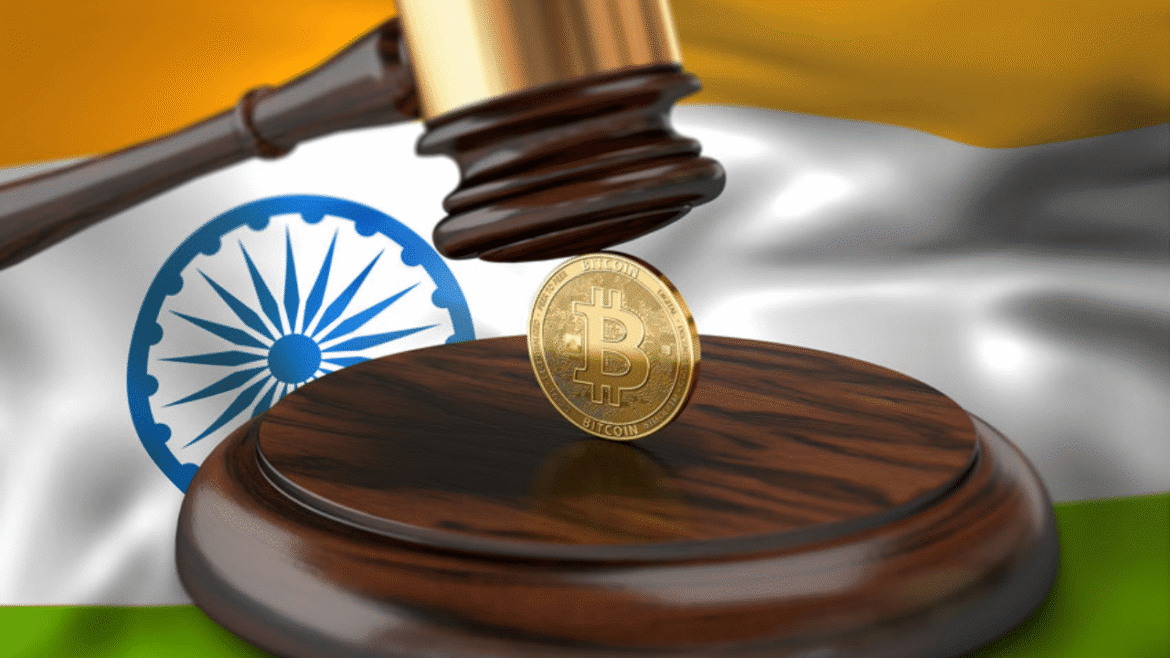India’s cautious stance on cryptocurrencies has put a new kind of business model at risk. Jetking Infotrain, an IT training company that wanted to become the country’s first listed firm with a major crypto treasury, has been stopped by the Bombay Stock Exchange (BSE) from listing its shares after it raised money to invest in virtual digital assets (VDAs).
This decision shows that even as digital asset treasury companies, which hold Bitcoin and other cryptocurrencies on their balance sheets, are gaining traction worldwide, India is still reluctant to let public funds move into this space.
BSE Blocks Jetking’s Listing Over Bitcoin Strategy
Jetking had secured in-principle approval from BSE on May 9, 2025, to issue shares through a preferential allotment. On May 23, its board cleared the allotment of over 3.96 lakh shares worth more than ₹6 crore. The company’s filings listed education and skill development, general corporate purposes, and acquisition of VDAs as objectives.
Nearly ₹3.96 crore, around 60% of the proceeds, was to be deployed into cryptocurrencies. Jetking already holds crypto in its treasury, and under current rules, Indian companies can invest in VDAs much like mutual funds or securities, as long as they disclose holdings to the Registrar of Companies.
However, BSE rejected the listing application, stating that “the policy on investment in virtual digital assets (VDAs) is under review and till a final view emerges, we would not be able to process the applications of this nature.”
Regulatory Grey Area Exposed
The decision underscores a deeper policy gap. While companies are allowed to buy crypto directly using profits or internal accruals, capital market authorities are uncomfortable with listed companies raising equity to invest in digital assets.
A BSE spokesperson explained, “We had processed the application in the normal course as per extant norms. Final approval was kept on hold to take up the issue of fundraising for investment in VDA at the policy level with the Regulator. Subsequently, as per the revised norms, a decision was taken to reject the application.”
Jetking’s joint MD and CFO, Siddharth Bharwani, said the company is reviewing legal options, including approaching the Securities Appellate Tribunal. He pointed out that “it has been five years since the Supreme Court said that cryptos were not illegal but require regulations.”
The situation also creates complications around reversing share allotments and refunding investors after funds have already been deployed.
Crypto Treasury Model Faces a Setback
BSE’s stance could derail plans by Indian entrepreneurs to launch crypto treasury companies modeled after global leaders like Strategy (formerly MicroStrategy), XXI in the US, and Metaplanet in Japan. These companies hold large amounts of Bitcoin and other crypto assets on their balance sheets and are known as DATs.
Unlike exchange-traded funds (ETFs), which issue units backed by crypto, DATs can raise equity and debt and also stake their crypto — locking up tokens to help secure networks while earning newly minted rewards.
But India’s legal treatment of crypto as “intangible assets” rather than securities or currency complicates the picture. Without clearer classification, such entities fall outside traditional financial services rules and face additional hurdles under laws like FEMA.
“There’s an increasingly urgent need for clearer classification of virtual digital assets under various existing laws. An approach of express regulatory guidance would be preferred to policy uncertainty,” said Jaideep Reddy, partner at Trilegal.
Banks are also grappling with this uncertainty. Some wealthy Indians have invested in US crypto ETFs through the RBI’s Liberalised Remittance Scheme, but local banks remain divided on whether such investments are permissible since the underlying assets are crypto.
“Exchanges have wide discretion to deny listing where the use of funds looks speculative and policy is unsettled until there’s a formal regulatory framework on how listed companies can deploy capital into crypto or other VDAs,” said Moin Ladha, partner at Khaitan & Co.
Industry Pushback: “Stop Gatekeeping”
CoinDCX CEO Sumit Gupta reacted strongly to BSE’s move, pointing out that globally “over 145 companies from Metaplanet in Japan to Tesla in the U.S. have added Bitcoin or crypto on their balance sheets.”
He cited Strategy — “a roughly $90 billion enterprise” holding “over 620,000 BTC” — which “posted more than $14 billion in unrealized gains in Q2 2025 alone.”
Gupta highlighted Jetking’s efforts: the company spent months planning its crypto treasury strategy, secured in-principle approval, raised ₹6.1 crore, deployed ₹3.96 crore into Bitcoin, and planned further investments, only to see the plan overturned overnight.
He questioned the rationale for the decision, asking, “The Supreme Court has already affirmed that crypto trading and investing are legal and subject to taxation, so it will be interesting to know on what basis BSE wishes to bar a company from this activity?”
Gupta added that it was ironic to block a “profit-generating company aiming to adopt a proven global model” while allowing many loss-making startups with unsustainable business models to raise large sums.
Warning that such decisions could leave India behind, he wrote, “This is exactly how India ends up playing catch-up with every new technology wave. We hesitate, we restrict, and by the time others have figured it out, we’re left behind.”
With BSE’s rejection of Jetking’s listing, the future of crypto treasury companies in India looks uncertain. The case has once again highlighted the urgent need for clear regulations on how Indian companies can engage with digital assets, and whether the country is ready to embrace business models already flourishing abroad.
Also Read: India’s ED Charges Raj Kundra Over ₹150 Crore in Gain Bitcoin Scam

